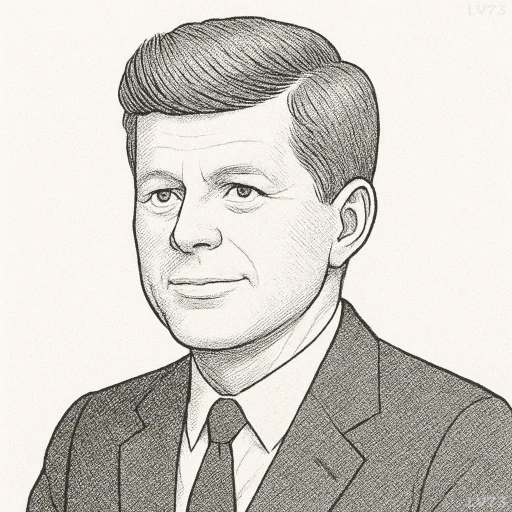“Why should man’s first flight to the moon be a matter of national competition? Why should the United States and the Soviet Union, in preparing for such expeditions, become involved in immense duplications of research, construction and expenditure?”

- May 29, 1917 – November 22, 1963
- American
- Politician
table of contents
Quote
“Why should man’s first flight to the moon be a matter of national competition? Why should the United States and the Soviet Union, in preparing for such expeditions, become involved in immense duplications of research, construction and expenditure?”
Explanation
In this statement, John F. Kennedy raises an important question about the costs and waste involved in the Space Race between the United States and the Soviet Union. He is questioning why the monumental task of exploring space—one of humanity’s greatest achievements—should be driven by national rivalry and the desire to outdo one another, rather than by cooperation and the shared pursuit of knowledge. Kennedy highlights that the resources spent by both nations on duplicating efforts in the fields of research, technology, and construction could be better spent on collaboration, advancing human progress without the need for competitive duplication.
This statement reflects Kennedy’s broader vision of international cooperation and a desire to transcend the limitations imposed by the Cold War. Kennedy saw the space program as a chance for humanity to unite in the pursuit of a common goal—to explore the unknown and expand human knowledge. He recognized that the benefits of space exploration were far greater than the political rivalry between the two superpowers and that humanity as a whole stood to gain more if both the United States and the Soviet Union worked together, rather than at cross-purposes. The suggestion of collaboration in space exploration foreshadows later international partnerships in space, such as the International Space Station (ISS), where nations work together for the advancement of science and the betterment of all.
In a broader sense, this quote serves as a reminder that human progress—especially in monumental fields like space exploration—should not be confined to national boundaries or competitive agendas. Instead, global challenges like space exploration, climate change, and public health would benefit from cooperation and shared responsibility. Kennedy’s call for unity over competition in the pursuit of great scientific endeavors is still highly relevant today, as we face the challenges of space colonization, climate action, and other global issues that require a collective, rather than fragmented, effort.
Would you like to share your impressions or related stories about this quote in the comments section?


